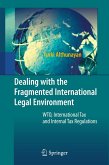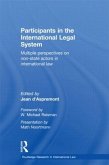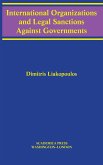The author's principal argument is that international law and international legal institutions are an important element of international relations and that political scientists in particular need to be more aware of the contributions they make. Arend critiques both the long-standing scepticism among political scientists, particularly adherents of structural realism, and the assumptions and methodologies of international lawyers.
This book provides an interdisciplinary examination of international law by addressing four critical questions: How are international legal rules distinctive? How does an investigator determine the existence of a rule of international law? Does international law really matter in international politics? and What effect could the changing nature of international relations have on international law? Using Constructivist theory, Arend argues that international law can alter the identity of states, and, consequently, have a profound impact on state behavior.
Hinweis: Dieser Artikel kann nur an eine deutsche Lieferadresse ausgeliefert werden.
This book provides an interdisciplinary examination of international law by addressing four critical questions: How are international legal rules distinctive? How does an investigator determine the existence of a rule of international law? Does international law really matter in international politics? and What effect could the changing nature of international relations have on international law? Using Constructivist theory, Arend argues that international law can alter the identity of states, and, consequently, have a profound impact on state behavior.
Hinweis: Dieser Artikel kann nur an eine deutsche Lieferadresse ausgeliefert werden.








